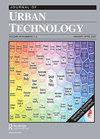分裂的城市主义@ 20:重新参与矛盾,限制和消费
IF 4.6
3区 经济学
Q1 URBAN STUDIES
引用次数: 1
摘要
《分裂的城市主义》一书中提出的目标已经基本实现。基础设施在批判性学术中不再被忽视,技术决定论受到广泛挑战,基础设施在社会技术和组合方面得到广泛研究。展望未来,对矛盾、限制和消费的批判性接触值得思考。《矛盾论》强调基础设施往往是两者兼而有之的:社会投资和资本主义榨取,统一和分裂,流动和限制。与类似物不同,约束在基础设施研究中很少受到关注。然而,控制和集中的基础设施有着悠久的历史,近几十年来一直在扩大,依次纳入和重新配置流通(或流动)基础设施。最后但并非最不重要的是,消费通常通过对排斥和分裂过程的关注而进入基础设施研究。很少有人用批判的、社会技术的术语来分析它,认为它是构成生产基础设施的一种活跃的、复杂的因素,也被生产基础设施所构成。通过这三个主题,我们可以继续利用SI@20的成果。本文章由计算机程序翻译,如有差异,请以英文原文为准。
Splintering Urbanism @ 20: Reengaging Contradiction, Confinement, and Consumption
ABSTRACT The goals laid out in Splintering Urbanism have largely been met. Infrastructure is no longer ignored in critical scholarship, technical determinism is broadly challenged, and infrastructure is widely studied in socio-technical and assemblage terms. Going forward, critical engagement with contradiction, confinement, and consumption are worth contemplating. Contradiction emphasizes how infrastructure is often both-and: social investment and capitalist extraction, unifying and divisive, flow and confinement. Confinement, unlike its analog, receives little attention in infrastructure studies. Infrastructures of control and concentration, however, have a long history and have been expanding in recent decades, enrolling and reconfiguring infrastructures of circulation (or flow) in turn. Last but not least, consumption usually comes into infrastructure studies through a concern with processes of exclusion and fragmentation. It is rarely analyzed in critical, socio-technical terms as an active and complex agent that structures and is structured by infrastructures of production. Through these three themes, we can continue to build on the gains of SI@20.
求助全文
通过发布文献求助,成功后即可免费获取论文全文。
去求助
来源期刊

Journal of Urban Technology
URBAN STUDIES-
CiteScore
8.50
自引率
4.20%
发文量
42
期刊介绍:
The Journal of Urban Technology publishes articles that review and analyze developments in urban technologies as well as articles that study the history and the political, economic, environmental, social, esthetic, and ethical effects of those technologies. The goal of the journal is, through education and discussion, to maximize the positive and minimize the adverse effects of technology on cities. The journal"s mission is to open a conversation between specialists and non-specialists (or among practitioners of different specialities) and is designed for both scholars and a general audience whose businesses, occupations, professions, or studies require that they become aware of the effects of new technologies on urban environments.
 求助内容:
求助内容: 应助结果提醒方式:
应助结果提醒方式:


